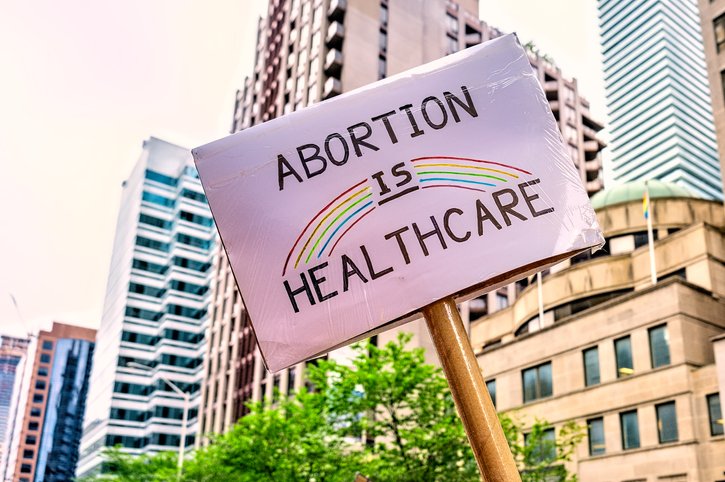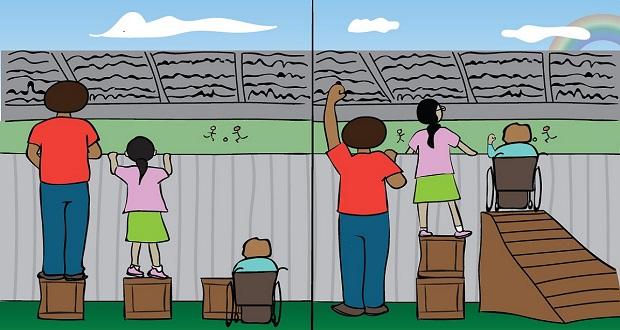
On Friday, June 24, 2022, the United States of America set itself back 50 years.
In a 5-4 decision, the Supreme Court of the United States (SCOTUS) overturned Roe v. Wade, the landmark ruling that established a federal constitutional right to abortion in 1973. This is arguably one of the most polarizing and controversial issues of our time, and the decision gravely impacts people’s reproductive health and autonomy over their own bodies. Justices Stephen Breyer, Sonia Sotomayor and Elena Kagan closed their joint dissenting opinion by saying: “With sorrow – for this Court, but more, for the many millions of American women who have today lost a fundamental constitutional protection – we dissent.”
While the shock of this decision may have been tempered by the leak of the draft opinion back in May, the reality of it happening has sparked a sweeping sense of outrage, disbelief, and sadness. This decision was made despite 69% of Americans opposed to completely overturning Roe v. Wade. It returns the rights to states to set their own abortion laws. In fact, thirteen states had trigger laws in place to immediately ban or severely restrict abortions at the time Roe v. Wade was overturned. (As of this post, efforts have been made in some of those states to temporarily ban them from enforcing these laws.)
The reality of this decision has sparked a sweeping sense of outrage, disbelief, and sadness. This decision was made despite 69% of Americans opposed to completely overturning Roe v. Wade. Click To TweetMany people feel that those who espouse to be “pro-life” are hypocritical, since some of those same individuals are strongly opposed to stricter gun control, citing the constitutional right to bear arms. Even on the heels of the unimaginable massacres in Uvalde, Texas and Buffalo, NY — within 10 days of each other leaving 31 people dead — it was difficult to obtain large bipartisan support for the gun legislation passed just last week. In the same week, SCOTUS actually expanded gun rights by striking down a New York law that restricted carrying concealed firearms in public, stating it violated the U.S. Constitution. At this point, many argue, firearms have more rights than a person’s uterus. Elie Mystal, justice correspondent at The Nation and author of Allow Me to Retort: A Black Guy’s Guide to the Constitution, put it best on a recent episode of The Reid Out, “If you want rights in this country, you better be a white cisgender hetero white man…or an Uzi [gun].”
Whose values and beliefs do the reversal of Roe v. Wade uphold? This is a moral issue. I absolutely respect those who oppose abortion and for religious or other reasons would never have one. What I am against is a government regulating what a person can choose to do with their body — a government of majority white cisgender men. In the words of the great philosopher, poet, and rapper Tupac Shakur, “…and since a man can’t make one [a baby], he has no right to tell a woman when and where to create one.”
I respect those who oppose abortion. What I am against is a government regulating what a person can choose to do with their body — a government of majority white cisgender men. #RoevWade Click To TweetWho Benefits? Who is Harmed?
At The Winters Group, we often speak about operationalizing justice. Justice requires us to ask who benefits, and who is harmed? As with most issues, due to inequitable and unjust systems, BIPOC (Black, Indigenous, People of Color) and those living below the poverty line who already suffer from lack of equitable healthcare and access, will be most harmed by the overturning of Roe v. Wade.
As with most issues, due to inequitable and unjust systems, BIPOC and those below the poverty line who already suffer from lack of equitable healthcare and access, will be most harmed by the overturning of #RoeVWade. Click To TweetOn social media I have seen people say this is an “all women” issue and ask why we have to make it a divisive issue by focusing on race. Racial equity principles develop goals and outcomes that will result in the improvement of all groups, while focusing on strategies targeted based on the needs of a particular group – e.g., Black women. The systems that fail the most marginalized amongst us are actually failing all of us. So, if we focus on repairing harm to the historically marginalized, everyone will ultimately benefit.
The systems that fail the most marginalized amongst us are actually failing all of us. So, if we focus on repairing harm to the historically marginalized, everyone will ultimately benefit. #RoevWade Click To TweetForcing people to carry unwanted, or potentially harmful pregnancies can have deadly consequences. Black women are 3 to 4 times more likely to experience a pregnancy related death than white women. Research shows that banning abortion would increase maternal mortality by 21% overall and 33% among Black women.
Black women are 3-4x more likely to experience a pregnancy related death than white women. Banning abortion would increase maternal mortality by 21% overall and 33% among Black women. #RoevWade Click To TweetSome abortions are performed as a life-saving measure in the case of dangerous and complicated pregnancies. For example, the treatment for ectopic pregnancy and miscarriage that one’s body won’t release naturally is — you guessed it — abortion. Black women are more likely to experience complications during pregnancy. With the overturning of Roe v. Wade, depending on where they live, people may no longer have a choice as to whether they want to continue with a pregnancy that may be harmful to their own health or result in a stillbirth. Or in the case of miscarriage, if the body does not expel the tissue naturally and it’s not removed medically, it can cause infection.
People with low socioeconomic status often live in areas without accessible, safe, and legal healthcare. They are more likely to live in “contraceptive deserts,” a term borrowed from the “food desert” concept. Contraceptive deserts are places where low-income people seeking birth control — such as IUDs or implants — have few places available within driving distance. This is also true for abortion. Prior to the overturning of Roe v. Wade, some states with higher poverty rates or higher population of Black people only had one abortion clinic, meaning there was already a lack of abortion access. Now that Roe v. Wade has been overturned, for women in states like Louisiana (one of the trigger law states) the closest abortion-legal state is over 600 miles away. Some may not be able to afford to make such a trip.
Contraceptive deserts are places where low-income people seeking birth control — such as IUDs or implants — have few places available within driving distance. This is also true for abortion. #RoevWade Click To TweetSo, then who benefits?
One benefactor group is the great replacement theorists who are under the impression that BIPOC will eventually replace white people because there are not enough white babies being born. In his book, Birth Dearth: What Happens When People in Free Countries Don’t Have Enough Babies, Ben Wattenberg, a conservative political commentator and demographer, theorizes that there are three solutions to retain white dominance and only one way will work. The first is to pay women to have babies, but this would not work because you would have to pay all women, including BIPOC. The second is allowing more immigrants into the United States, but most who want to enter the country are BIPOC, so that is not a solution. The third solution is to ban abortion to prevent white fetuses from being aborted. In other words, those who wish to control the future makeup of the population have a vested interest in controlling procreation, and thus overturning Roe v. Wade is in their favor.
Does This Ruling Foreshadow a Grim Future?
Justice Clarence Thomas’ concurring opinion has many worried about other personal rights that may be in jeopardy. In it, he suggested that the same rationale that the Supreme Court used to declare there was no right to abortion should also be used to overturn cases establishing rights to contraception, same-sex consensual relations, and same-sex marriage. In one passage that has garnered much attention, Thomas wrote:
In future cases, we should reconsider all of this Court’s substantive due process precedents, including Griswold, Lawrence, and Obergefell. Because any substantive due process decision is “demonstrably erroneous,” we have a duty to “correct the error” established in those precedents.
Griswold v. Connecticut (1965) prevents states from making access to contraception illegal for married couples; Lawrence v. Texas (2003) allowed for same-sex consensual sexual relations; and Obergefell v. Hodges (2015) legalized same-sex marriage nationwide. Thomas’ concurrence contrasted with what Justice Samuel Alito wrote that “nothing in this opinion should be understood to cast doubt on precedents that do not concern abortion.”
The Due Process Clause, found in both the Fifth and Fourteenth Amendments of the U.S. Constitution, acts as a safeguard from arbitrary denial of “life, liberty, or property” by the government. Thomas argues that “‘substantive due process’ is an oxymoron that ‘lack[s] any basis in the Constitution.’” He further states that the Due Process Clause “does not secure any substantive rights.” Basically, this asserts that such “unenumerated” rights (abortion, birth control, same-sex sexual relations, and same-sex marriage) are made up.
Katherine L. Kraschel, a reproductive justice lecturer at Yale Law School, argued that Thomas’ concurrence is “an ominous preview of how far the Supreme Court may go to undermine existing constitutionally-protected rights. There are things that we may take for granted that will no longer be guaranteed.”
Thomas’ concurrence is not legally binding, it simply explains his reasoning. Only time will tell if these rights are truly at risk.
What’s Next?
Since the decision, several organizations have committed to support employees in accessing health care services that may be banned in their state. For example, some organizations will now cover employees travel (including lodging and food) expenses. Patagonia, an outdoor clothing retailer, even announced that it would bail out employees that are arrested while “peacefully” protesting for “reproductive justice.” Some companies had already begun revising and creating policies when the opinion was leaked in May, including Starbucks, Tesla, Yelp, Airbnb, Microsoft, Netflix, DoorDash, JPMorgan Chase, Levi Strauss & Co., PayPal, and Reddit. More organizations, including Disney, Adidas, Meta, Dick’s Sporting Goods and Condé Nast, announced policy changes once the decision became final. With reproductive rights policy, organizations should consider paying employees upfront versus offering reimbursement, as not everyone may have the funds readily available to travel out of state. They must also consider how they will protect the privacy of those employees that receive these benefits.
With reproductive rights policy, organizations should consider paying employees upfront versus offering reimbursement, as not everyone may have the funds readily available to travel out of state. #RoevWade Click To TweetWhile these actions should be lauded, some are calling for more. Many organizations have remained silent and have not issued any public statements that directly reference the ruling. I have heard suggestions that organizations relocate their headquarters to states where abortion is legal, to pour into those economies instead. While in theory this sounds good, it is realistically unlikely, especially given that there are few abortion-friendly states available, and moving an entire organization, depending on the size, is likely not feasible. However, organizations could allow employees to relocate and work remotely in states with abortion rights. Google sent a memo to employees allowing just that — no questions asked.
Additionally, organizations should revisit where their money goes – political and charitable donations. Consider backing political candidates that support the rights and causes that your employees are concerned about and give to organizations that support reproductive health care.
Orgs should revisit where their money goes. Back political candidates that support the rights and causes your employees are concerned about and give to orgs that support reproductive health care. #RoevWade Click To TweetWhat can we do as individuals? Vote. Vote for people who care about you and your rights more than their personal gain. Donate. Donate to organizations that support reproductive health, such as Planned Parenthood, National Network of Abortion Funds, and Keep Our Clinics. Speak Up. If you work for an organization that has locations in states where abortions are now illegal that have not yet revised or created a policy to support those seeking abortion services, reach out to your HR and other leaders demanding changes and increased benefits. Take Action. Check out Bans Off Our Bodies for events and educational resources you can participate in virtually or in person. (P.S. men, you can do this too!)


















